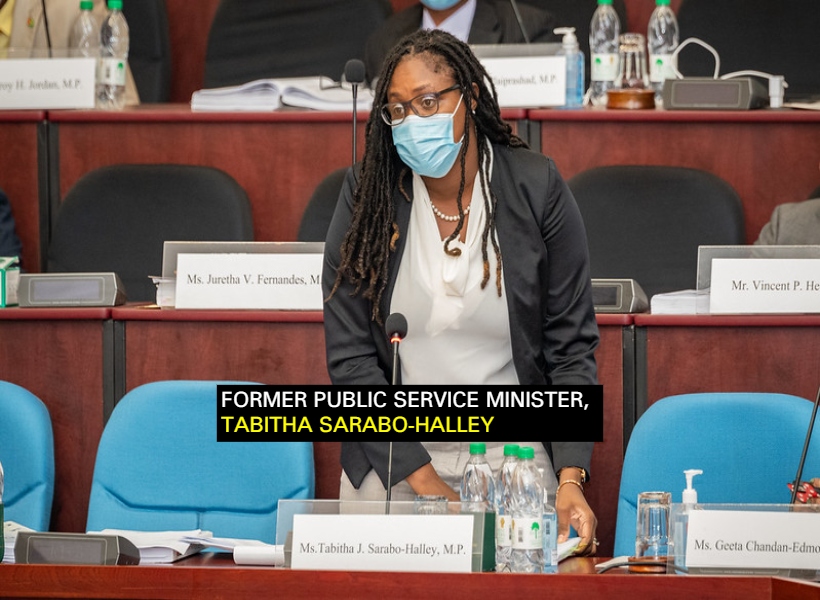Tabitha Sarabo-Halley, the Former Minister of Public Service under the David Granger-led regime, is denying that the Bertram College of the Public Service was a “political machinery”. In fact, the politician argues that the establishment of the institution was geared at solving problems with the service.
Her refutation comes mere hours after the Public Service Ministry confirmed that it had shuttered the institution because it was redundant, lacked ‘fair’ recruitment processes, and caused hemorrhage to the nation’s purse. The ministry said that the annual budget for the Staff College in 2017 was a whopping $175.8M and $143.6M in 2018. Also, 99% of the staff were on contract with 50% being retirees. It revealed that recurrent expenses, i.e., salaries for the staff members, collectively amounted to in excess of $87M yearly.
The ministry contended, too, that the college sought to “duplicate and supersede” the ministry’s existing training division, but Sarabo-Halley was quick to point out that the two mechanisms were different in many respects. Most significant, she said, is the fact that the Ministry’s division provided training to persons already in the system, whereas the college was mandated to train persons desirous of serving. She added that the ultimate plan was to have the college be responsible for all training relating to the public service, but that never materialised given the March 2 General and Regional Elections which led to a regime change.
The Member of Parliament (MP) denied that recruitment processes were unfair. She said that the four cohorts that graduated from the college came from “all cross-sections of Guyana”.
“The administration of Bertram Collins College went into all regions of this country to ensure that placement was equitable, and all regions and ethnicities were represented in each cohort. Any statement or inference that suggests otherwise is patently false,” she said.
She stressed that the establishment of the college was for the public good, and that there was no sinister motive behind its creation.
“Some of the major issues we confronted were decades – long vacant positions in critical departments, persons in positions for which they were woefully unqualified for all affecting the ability to smoothly serve the public,” she noted. She added that the birth of the institution was geared at rectifying issues, therefore its closure – according to her – is ‘unconscionable’, ‘callous’ and a major blow to the service.
The former Minister said that she is concerned about how those approximate 240 graduates in the system will be treated, now that the college has been condemned and declared a political machinery.
“Will there be stifling of promotions or will attempts be made to frustrate them to the point where they feel they must resign?” she queried.
Meanwhile, the PPP/C regime said that it will be following the promises made in its manifesto by performing a “structural overhaul” of training programmes to promote “advanced national training in relevant and priority areas within the Public Sector which will be catered for in the 2021 budget”.









